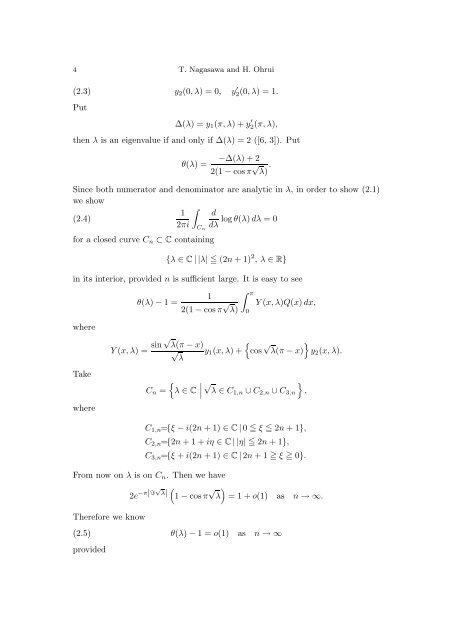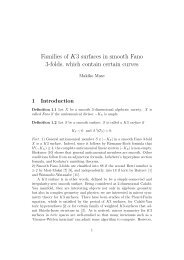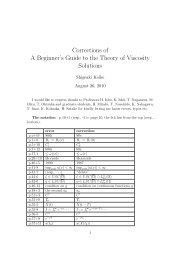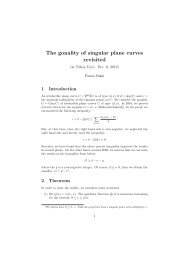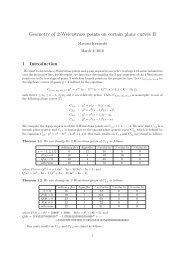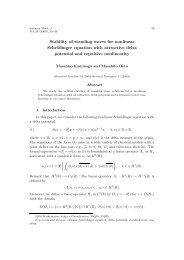Asymptotic distribution of eigenvalues of Hill's equation with ...
Asymptotic distribution of eigenvalues of Hill's equation with ...
Asymptotic distribution of eigenvalues of Hill's equation with ...
You also want an ePaper? Increase the reach of your titles
YUMPU automatically turns print PDFs into web optimized ePapers that Google loves.
4 T. Nagasawa and H. Ohrui(2.3)Puty 2 (0,λ)=0,y ′ 2(0,λ)=1.Δ(λ) =y 1 (π, λ)+y 2 ′ (π, λ),then λ is an eigenvalue if and only if Δ(λ) = 2 ([6, 3]). Putθ(λ) =−Δ(λ)+22(1 − cos π √ λ) .Since both numerator and denominator are analytic in λ, in order to show (2.1)we show∫(2.4)1 dlog θ(λ) dλ =02πi C ndλfor a closed curve C n ⊂ C containing{λ ∈ C ||λ| ≦ (2n +1) 2 ,λ∈ R}in its interior, provided n is sufficient large. It is easy to see1θ(λ) − 1=2(1 − cos π √ λ)∫ π0Y (x, λ)Q(x) dx,whereTakeY (x, λ) = sin √ λ(π − x){√ y 1 (x, λ)+ cos √ }λ(π − x) y 2 (x, λ).λC n ={λ ∈ C ∣ √ }λ ∈ C 1,n ∪ C 2,n ∪ C 3,n ,whereC 1,n ={ξ − i(2n +1)∈ C | 0 ≦ ξ ≦ 2n +1},C 2,n ={2n +1+iη ∈ C ||η| ≦ 2n +1},C 3,n ={ξ + i(2n +1)∈ C | 2n +1≧ ξ ≧ 0}.From now on λ is on C n .Thenwehave2e −π|I√ λ| ( 1 − cos π √ )λ =1+o(1) as n →∞.Therefore we know(2.5)providedθ(λ) − 1=o(1) as n →∞


